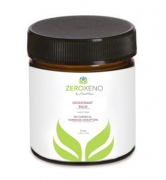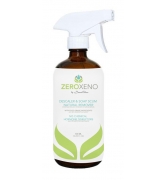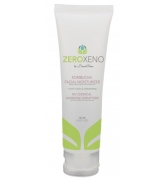
New here? Take a look and find out what we’re all about. It may just change your world!
Play video
Bonnie suffered from hormone related problems until she took her health into her own hands.
Play video
Protect yourself by following these 7 simple steps to eliminate up to 70% of xenoestrogens.
Play videoFacebook Activity
#LearnTheScience
Mono-2-ethylhexyl Phthalate-Induced Downregulation of MMP11 in Foreskin Fibroblasts Contributes to the Pathogenesis of Hypospadias
A 2024 study states that hypospadias is one of the most common congenital anomalies of the male urogenital system, and di(2-ethylhexyl) phthalate (DEHP), a widely used endocrine-disrupting chemical (EDC), is considered a significant risk factor for this condition. Mono-2-ethylhexyl phthalate (MEHP), the toxic active metabolite of DEHP, has been proven to affect penile development and ultimately result in the hypospadias phenotype.
Endocrine Disrupting Chemicals in the Pathogenesis of Hypospadias; Developmental and Toxicological Perspectives
Hypospadias is a defect in penile urethral closure that occurs in approximately 1/150 live male births (2021 study) in developed nations, making it one of the most common congenital abnormalities worldwide. Alarmingly, the frequency of hypospadias has increased rapidly over recent decades and is continuing to rise. Recent research reviewed herein suggests that the rise in hypospadias rates can be directly linked to our increasing exposure to endocrine disrupting chemicals (EDCs), especially those that affect estrogen and androgen signalling.
About Zero Xeno
Many people have never heard of xenoestrogens.The term 'xeno' simply means foreign, and 'estrogen' refers to a female hormone. Xenoestrogens are foreign, man-made chemicals that can mimic or disrupt estrogen activity in the body, interfering with hormonal balance and normal functioning. Xenoestrogens are classified as endocrine disrupting chemicals (EDCs) and are commonly referred to as hormone disrupting chemicals.
The World Health Organization has published 3 papers declaring "EDCs a global issue that needs immediate action."
Estrogen-mimicking chemicals are commonly found in everyday personal care products, cosmetics and even household cleaners. With repeated exposure, these hormone disruptors can trick your body into responding to xenoestrogens as if they were your own natural estrogen. At Zero Xeno, we're committed to helping you make healthier choices and live a xenoestrogen-free life!















